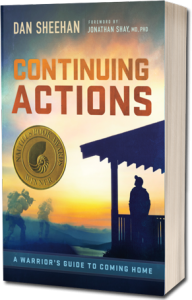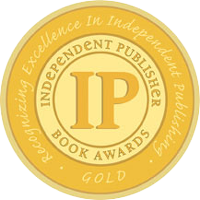Continuing Actions Chapter 11
AS UNSELFISH AS IT GETS
“Cover me, I’m fucked!” “Fuck you—I’m covered!” —Conversation between two grunts at Thermopylae, Fallujah, and every battle in-between
IT DOESN’T MATTER if you’re a grunt, an admin clerk, motor transport, or a high-speed, low-drag recon guy, there’s somebody in your unit who’s a selfish prick. This guy—or gal—always makes sure they’re taken care of first. Their pay is never screwed up, their vehicle always has the chow and water in it, their shelter is always the first one up and comfortable, and they never lift a finger to help anybody else.
Selfishness, as much as we act like it doesn’t occur in the military, is an unavoidable attribute of humans everywhere. At some point, the unselfish majority of service members realize they cannot change the selfish ones and quit trying. Instead, they double-down on their own selflessness in an attempt to make up for those who are only looking out for themselves. They become almost violently selfless—aggressively seeking any opportunity to put the needs of others first. To the veterans who fall into this category, and it is the majority of us, everything I’ve written thus far has likely sounded selfish.
As well it should. Because up to now the continuing actions described in this book have required veterans to go internal, to focus all their effort and energy on overcoming their own challenges. As I showed with examples from my own life, this requires taking time away from family, work, studies, and making money in order to get your own physical, mental, and spiritual house in order. This sounds like the very definition of selfish.
But it’s not.
IT’S NOT SELFISH BECAUSE OF WHAT COMES NEXT
Nobody gets a medal for completing their journey. There’s no secret handshake, no plaque to hang on the wall, and no elevated social status for achieving it. The last-place runner in a 5k gets more overt congratulations for their efforts than you will. But that’s never been the point of this journey. The warrior’s journey is one of discovery, not for our own gain, but so we can help others.
Just as helping a comrade in battle is part of our duty, so is helping a comrade at home. Executing this duty, however, is not as straightforward as just dragging them out of the line of fire. For the vast majority of us, the knowledge and skills required to assist others through the challenges of coming home are not innate. They must be learned.
Returning warriors must initially focus on their own challenges because that is the only way to attain the tools they’ll need to help others. You have to experience the confusion, loss of purpose and maybe your faith, and also the deep betrayal of having your emotions seemingly turn against you—and then learn to deal with these issues—before you can help somebody else do the same.
Overcoming the personal challenges of the first three phases of the warrior’s return—physical, emotional, and spiritual— were the prerequisites to reach this point. Your efforts up till now had to be directed inward. From this point on, however, they go outward. This is the final phase of the warrior’s return—the one where we share what we’ve learned to help others. To invest blood, sweat, and tears into extracting something valuable from your experiences, and then share it freely with those who need it the most, is the very opposite of selfish.
FINDING THE BOON
Love it or hate it, your time in the service has put you through experiences that have given you something, something valuable that is hard to put into words. Like the archetypal warriors in mythology, your journey has transformed you. You’ve learned things few others have, changed, and emerged from the crucible of service as a different person. It is in the essence of this personal transformation that we find what Campbell described as “the boon.”
The mythological warrior’s journey doesn’t end until he or she returns from the unknown bearing something of value. This “thing” is most often enhanced consciousness, a changed worldview, or something beneficial to the warrior’s community as a whole. Gaining this boon, and returning to share it with others, is the whole point of the warrior’s journey. It’s what elevates the journey beyond just a series of adventures.
The definition of what could be considered a boon has changed with time. Back when a warrior’s skill on the battlefield decided life or death for the entire community, the boon may have been victory itself. World Wars I and II may have had this aspect due to the immensity of the conflicts, but few other modern wars attain that level of existential threat. Negotiated settlements, political interests, and laws of armed conflict have removed total annihilation of the losing side as a true possibility in modern combat. More often than not, wars are now fought to achieve limited goals and objectives. Individual warrior’s efforts to secure victory achieve little notice in the community because the community as a whole has very little at stake.
So what boon can the modern warrior offer society? If fire has already been brought down from the gods, technology and science have proven what our world is and isn’t, and worldviews are formed by instant media access to the farthest reaches of the planet, then what of value is left for the warrior to bring back from the unknown?
Wisdom and insight.
The wisdom and insight gained by experience, by thoughtful consideration, and by becoming conscious of what is truly important in life. These are the modern warrior’s boon. The terrible trials and ordeals of combat, if survived, offer warriors unique opportunities to learn and grow. These opportunities are not for the faint of heart and, indeed, to experience them we must spend time at the fragile border between life and death. But the warrior who has seen, done, and survived the arena of combat has earned the opportunity to learn valuable lessons. The boon of wisdom is theirs for the taking.
To do this, though, to achieve the wisdom and maturity of experience that is the veteran’s boon to society, returning warriors must overcome the challenges of their return. The physical, emotional, and spiritual impacts of combat must be acknowledged, understood, and incorporated into our identity and awareness. Only by refusing to stagnate and choosing to complete our journey can we gain the wisdom of our experiences.
Then we can look for the opportunity to share it—and fulfill our duty to our comrades in the process.
THE COMMUNITY
To whom do we offer our hard-earned wisdom and maturity? As loudly as America’s love for her veterans is proclaimed in advertisements and media reports, the population as a whole is not waiting with baited breath for our wisdom to pour forth. Before that can happen we, veterans as a whole, must demonstrate the value of our wisdom. And for most veterans this will not occur at the national level. We may end up there, but first we must look closer to home to find the community most willing and able to benefit from the boon we’ve wrested from our adventures.
FAMILY
The people closest to us form the core of our community. Our family members, especially our kids, bear the brunt of our burdens if we stagnate. Physical isolation, emotional coldness, flashes of rage, and unpredictable responses are how we transfer our burdens on to them. But if we do the hard work required to push through the challenges of our return, they stand to benefit the most.
Buddha is credited with the insightful phrase, “Life is suffering.” Well, he had a point. Look around you. The reality is that everyone you know will die. The ability to ignore this fact is one of the first luxuries combat takes away from us. We’ve seen how fragile the human body is, how a huge personality bleeds into the dirt just the same as a meek one. Our relationship with death is one of equanimity and respect; we can respect its inevitability while refusing to make its job any easier.
Our family members are unlikely to have this same understanding. During times of family grief or tragedy, they will be confronted by the uncomfortable truths of life, often when they are least prepared to deal with them. During these times of crisis, the wisdom we’ve extracted from our experiences can be most valuable. We can be the pillar they lean on for support. A word, a touch, a look that lets them know we understand their pain, without them having to explain it, can make all the difference to someone imagining they are alone. It’s not that we can fix what has happened, but rather our ability to understand their pain that makes our support unique and effective.
And it’s not only in the arena of death and suffering where our wisdom has value. The ability to pass on life lessons, guide others through difficult transitions, and provide a solid foundation for our children to develop into responsible adults are also part of the returning warrior’s boon. Combat is a savage but effective teacher. The life lessons we learned under fire, the struggles of transitioning into, and out of, the military, and the awareness we gained by unpacking our reactions to combat have matured us beyond our years. The life wisdom born of this maturity is the boon that can provide calm and steady guidance through any challenges we, or our families, face in the future.
OTHER VETERANS
Regardless whether you are an orphan or are surrounded by multiple generations of your kin, another community exists that stands to benefit from the efforts you make to find your boon—veterans.
Every warrior will need to figure out their own way to transition home. But that doesn’t mean we can’t help each other do it. For every veteran who overcomes the challenges of coming home, there are many more who’ve stagnated. You know them. They are our brothers and sisters who can’t move on, who are mired in rage and hate. They are the ones who hide behind HESCO barriers filled with misconceptions and refuse to patrol. They are not living in the present, only dying in the past.
They cannot be goaded into leaving their imagined security. Encouraging them to honestly examine their emotions elicits angry responses and accusations of weakness. They regularly retreat behind social media avatars and spew hatred and rage online, portraying themselves as living reincarnations of the Spartan 300—stoic defenders of a population they denigrate for requiring protection while simultaneously longing to feel part of it. Far from the physical battlefields where they fought, these men and women maintain their combat mindset as if their life still depends on it. It is fear of the work required to heal their inner wounds and reestablish their concept of humanity that is keeping them from moving forward. In their never-ending battle, the threats they protect against are no longer external. They’re internal.
How can we, their brothers- and sisters-in-arms, help them recognize this? How can we overcome the anger and scorn they direct at us when we attempt to pull back the curtain on their suffering? There is a way we can do this that doesn’t involve confrontation. It requires leadership that encourages without ultimatums, that empowers rather than subordinates the follower, and that fosters initiative on all levels. It’s called “leadership by example” and it is the foundational ethos of any good leader.
Imagine a platoon in full MOPP gear, gas masks and all. Dead birds and dogs give evidence that it was not a drill, that deadly gas really was used. When the “All Clear” sounds, there is no mad rush to strip off the protective gear. Foul-smelling gas masks remain tight against their faces as they cast nervous glances at each other. But they can’t stay like that forever. The platoon has work to do, a mission to accomplish. They cannot stagnate in fear. Eventually someone takes the risk. He breaks the seal on his mask and the rest of the platoon watches closely.
First breath. Is he going to die?
No coughing, no tears. Maybe a fake grimace if he’s a joker, then a smile. Everybody strips off their masks and inhales deeply. When they exhale, their tension goes, too.
This is the situation our modern warrior’s journey leaves us in. We all return home wearing the gas mask of compartmentalization. Then we retreat into our holes, houses, and communities and struggle to breathe. The “All Clear” sounds a thousand times but cannot reach our ears. It’s not until we see someone else, someone like us, take their mask off—and live—that we grow strong enough to do it, too.
RETURNING TO A FULL, RICH LIFE
The compartmented life is a half-life, with emotions blunted and separated from conscious thoughts and actions. We want to be that perfect dad, mom, son, or daughter. We want our lovers to know us inside and out—our weaknesses as well as our strengths. We want to develop nurturing relationships with our children and for them to know we love them more than life itself. But we can’t live a life like that if we choose to keep our masks on.
We fool ourselves into believing our bullying and strict discipline are intended to make ourselves and our kids tougher, better equipped to handle life’s challenges. We may even see living an emotional half-life as some sick badge of honor and accept it as an unavoidable part of being a warrior. Much of our concept of strength revolves around the falsehood that, to be strong, you must control and suppress any emotional response not reeking of testosterone. As wrong as this sentiment is, it is an aspect of American culture that veterans may have to address before they can gain the courage to break the seal.
When General Patton got in trouble for slapping a shell- shocked soldier who was in a hospital in Italy, he explained that he was trying to motivate the young man to shake it off, to buck up. While a physical act like that is unthinkable today, there are still people in our society who believe veterans suffering PTSD and postservice adjustment issues are whiny babies who just need to “man up.”
This is the message of ignorance.
Whether ill-considered or criminally stupid, people who make statements that our veterans are somehow weak for experiencing normal human emotions are saying that our military consists of disposable heroes. They’re promoting the simple-minded concept that the only benefit a warrior has to society is on the battlefield, and usually by dying there. They don’t seem to realize that our nation stands to benefit tremendously from an influx of well-adjusted veterans empowered by the conscious wisdom of their experiences. The only way to gain that wisdom is to fully expose ourselves to the traumas of our past.
If these individuals are veterans, I recommend they take an honest look at themselves and consider how damaging their statements are to their brothers and sisters who have shown the courage to face their demons. Those who make these statements without having served should be ignored as fools. While we fought to protect their right of free speech, among other things, that doesn’t mean we have to listen to their message of ignorance that serves to enslave and marginalize us.
Veterans do not have to bury their emotions forever. We do not have to meekly accept that our service will always force us to react in ways we know to be hurtful to our, and our families’, happiness. We are warriors, not victims, and we have a choice to make: Stagnate in fear or advance to face our challenges head- on. Attacking and overcoming our obstacles is the only real option.
But somebody has to be first to go over the wall, somebody has to be first to take off their gas mask. Your buddies from combat are waiting for you to break the seal, to begin the process of de-compartmentalization. You can lead from the front and show, rather than tell, them how to move forward. And by taking the initiative to address your own challenges of coming home, you are leading by example for the entire veteran community, not just your close buddies.
OH, AND ANOTHER THING . . .
If the thought of investing serious time and energy in your own health and happiness still makes you feel selfish, here’s another consideration. The two primary beneficiaries of the wisdom you stand to gain if you do focus on yourself for a bit—your family and other veterans—may very well be one and the same.
According to a recent survey conducted by the Pew Research Center, veterans are more likely than members of the general public to have family connections to the military. Seventy-nine percent of veterans surveyed had immediate family members who also served, as opposed to 61% of the general public. This gap grows larger among respondents under 40 years of age—60% of these veterans had an immediate family member who also served as opposed to 39% of the general public.
While interesting, the concentration of volunteers among families with a strong tradition of military service may not be enough to push a stubborn and proud veteran to face the challenges of coming home. They may imagine their grandfather never had any problems after WWII, so why should they have any after Iraq? Even if in their hearts they know this to be false, family myths and legends are difficult to overcome. This is why, in light of the following trend, it is more important than ever for today’s veterans to face the challenges of coming home openly, honestly, and without considering themselves selfish or weak for doing so:
“The biggest gap in terms of family connections is in the share [of the population] that has a child who has served in the military. Veterans are more than twice as likely as members of the general public to say they have a son or daughter who has served.” (The Military-Civilian Gap: Fewer Family Connections, 23 November 2011 by Kim Parker www.pewsocialtrends.org)
This report tells us there is more than double the chance that your kid(s)—if you have any—will choose to serve because you did. If this doesn’t reach in and grab hold of your parental responsibility bone, then nothing will. There may be nothing you can do to influence your child’s decision to serve—rail against the military and they may rebel against you, encourage it as their duty and they may rebel against you. Regardless of your opinions of military service, your children will know that you served and that your period of service had a profound impact on you. Their model of what it means to be a mature adult will include some aspect of military service in it. That’s just the way it works.
They may serve, they may not. But if they do, then they will likely face the same trials and challenges you faced. Indeed, that may be their primary motivation to serve—to prove that they can fight the same battles as you did. The military will prepare them very well to go into combat. But the leftover physical reactions, the chasm between their conscious and unconscious minds, and the shattered remains of their humanity are all going to follow them home from their battlefields, just like they did for us. It is unlikely that military culture will adapt quickly enough to address these issues in time to help our kids. But we can.
It is our responsibility to prepare our children for the challenges of coming home. Don’t have any? Nieces, nephews, and other young people in your community count as well. The challenges they will face, should they choose to serve, have not changed for thousands of years. They’ll face them because they want to test their mettle, and they’ll discover, just as we did, that the transformation they seek comes at a cost.
These young people will need role models, mentors, and heroes to show them how to handle that cost. What kind will you be? One who hides the truth and rearms the trap of stagnation? Or one with the strength to face, deal with, and share the full truth of what war does to human beings?
If you wish to feed the boon of your knowledge back into the loop, I encourage you to use this book as the starting point for the return phase of your own journey. Armed with the background information in the first part, and the specific examples of the second, you are ready to move forward against your own challenges.
The challenges are there. They’re real, they’re deadly, and they’ve always been borne by those who shoulder the warrior’s burdens. This book has brought you up to the Line of Departure but that’s as far as it can go. From here on out, it’s up to you.
So, muster your knowledge, decide upon your plan, and step out with confidence. The only way to fail is to quit trying.



